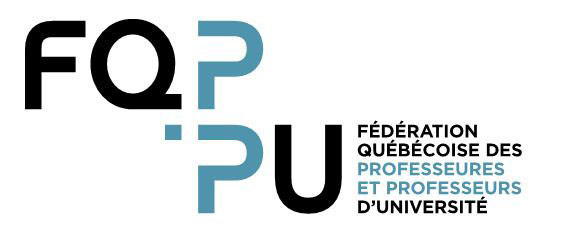Principles to guide our collective action
What we stand for
For over 30 years, we’ve been working to build a university that serves the common good—a university that is focused on the success of the most significant number of people, democratically managed, respectful of human rights and equity, adequately funded, and essentially public.

1. The fundamental mission of universities
We affirm that the university’s fundamental mission is the production and dissemination of critical knowledge, primarily through teaching, research, creation, and community service. This mission must not be subject to commercial considerations.
2. Institutional autonomy
We demand the autonomy of the academic institution and full respect for its mission. We take action to defend and promote university autonomy and academic freedom.
3. A vision based on consultation and cooperation
We reiterate the need to promote a vision of Quebec’s universities’ development based on consultation and cooperation between these institutions while respecting their autonomy. We are opposed to any plans to create a hierarchy of universities or to any measures that would encourage competition or opposition between them.
4. Gender equality
We affirm the principle of equality between women and men in academia and recognize the importance of promoting women’s increased participation in all aspects of university life.
5. Opposition to all forms of discrimination
We are opposed to all forms of discrimination. We act to ensure that no university institution exerts, directly or indirectly, any pressure, constraint or discrimination against any of its members on the grounds of ethnic origin, beliefs, gender, pregnancy status, age, physical disability, political or other opinions or actions, language, sexual orientation, or the exercise of any of their rights.
6. The inalienable right to collective bargaining
We recognize the inalienable right of teachers, as of all workers, to collectively bargain their working conditions, and we oppose any measure aimed at restricting or contradicting its application.
7. A community of teachers and students, first and foremost
We affirm that the university is a community primarily composed of professors and students. As a result, we challenge the claim of institutional administrators and their groupings to be the sole or principal representatives of the academic community.
8. Consultative—and decision-making—participation
We affirm that professors must be able to fully assume their roles and places in academic establishments, both within decision-making bodies and advisory bodies.
9. Access to higher education
We affirm that access to higher education is a fundamental right and demand the removal of social, economic, and geographical obstacles to its exercise.
10. Support for retired teachers’ associations
We fully support all efforts to unite associations of retired teachers and are open to collaborating with these associations. The expertise and experience of former professors, who can be entrusted with specific mandates, would benefit the Federation and the faculty.

